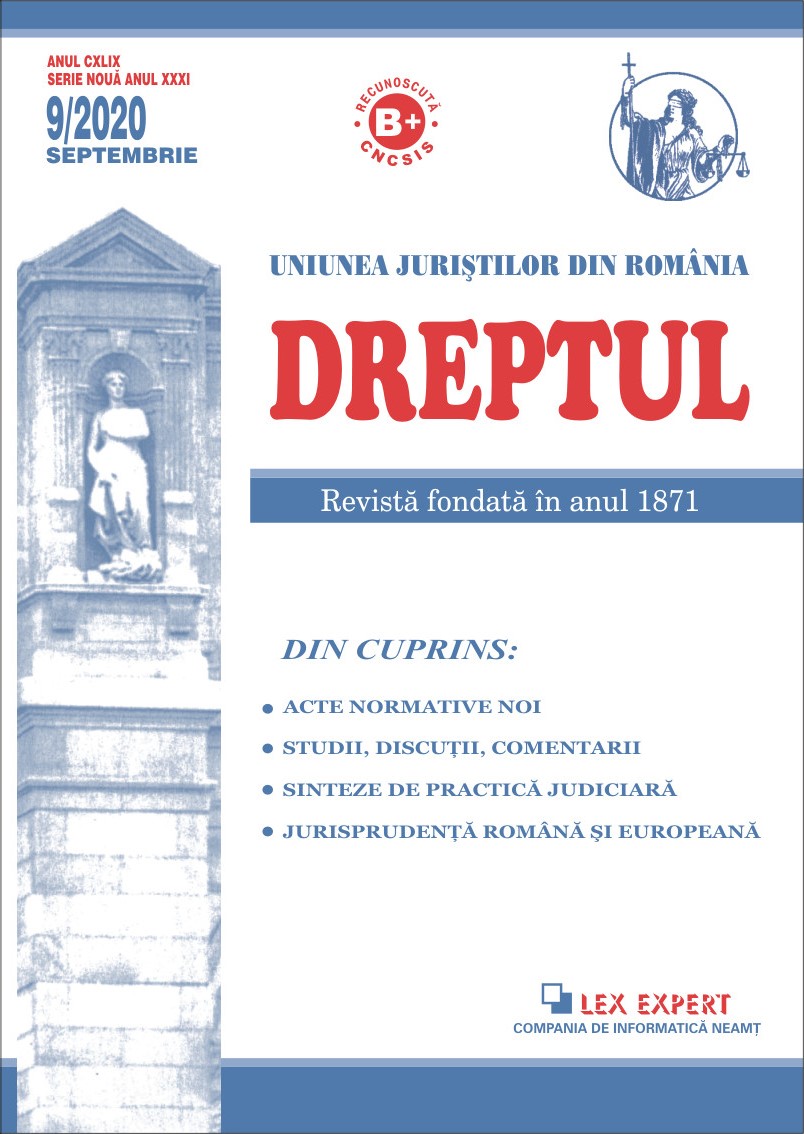Solidaritatea modernă și represiunea administrativă
Modern solidarity and administrative repression
Author(s): Mădălina Cristina Dănișor, Dan Claudiu DănişorSubject(s): Constitutional Law
Published by: Uniunea Juriștilor din România
Keywords: modernity; structure of judicial systems; rule of law; criminal law; administrative law; civil law; administrative repression; administrative authorities; European Court of Human Rights;
Summary/Abstract: Modern society is based on the predominance of organic solidarity over mechanical solidarity and, consequently, on the predominance of the law which ensures cooperation between autonomous subjects from repressive law, which sanctions, through penalty, any deviation from the standards of the common conscience. Modern society is „civilized”, i.e. it is firstly and foremost based on „civil” law, the repressive law only being exceptional, which translates into three principles: that of the subsidiarity of criminal law, that of the necessity and legality of offences and penalties, and that of the additional protection of individual freedom when the subject is criminally charged. The consequence thereof is that, in modern liberal democracies, all repressive law is criminal, that any charge which may lead to the application of a repressive sanction is a criminal charge and that the law-maker cannot assign to the administration the competence regarding the application of repressive sanctions. Under these circumstances, the transformation of some repressive norms into norms of administrative law is a violation of the fundamental principles that structure the legal order of modern liberal states. Nonetheless, this type of practice is becoming more common. In order to ensure individual freedom, this tendency must be corrected. As politicians are not willing to do so, naturally this is a task for the judicial courts, that can rely for this endeavour on the European Court of Human Rights’ constructive jurisprudence.
Journal: Revista „Dreptul”
- Issue Year: 2020
- Issue No: 09
- Page Range: 108-130
- Page Count: 23
- Language: Romanian
- Content File-PDF

